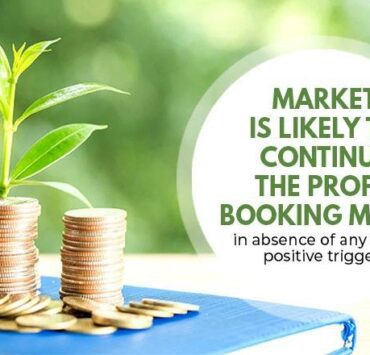Cash Strapped and Loaded With Debt? Time to Spend your Money in Line with the Truth of Who You Are

Financial anxiety has become a part of life now for everyone – from rich to the poor. There is no doubt that today, money has become one of the biggest sources of stress for most of us. It is rightly said that “Money is a good servant but a bad master.”
Today, one of the biggest problems is people have forgotten the concept of living within their means. The YOLO (you live only once) and FOMO (fear of missing out) attitude is pushing, especially, the millennials and generation Z towards the financial cliff.
- We need a handbag to carry our money, wallet, essentials, but we want a Louis Vuitton handbag
- We need a smartphone to communicate and do our daily tasks, but we want the latest iPhone 11 Pro (that costs Rs 99,000)
- We need a watch to keep track of time, but we want a Rolex
To top this off we also have to face the reality of rising home costs, growing bills, high standard of living, growing debt (student loans, home loans, etc) and skyrocketing cost of education. No wonder most of the people are stressed when it comes to their finances and are living paycheck to paycheck. Yet they overlook the financial dangers and continue to live a lifestyle that can be too expensive for their own good
How healthy is your relationship with money? If you are constantly complaining about not having enough money and have been piling on debt, then you’re very likely to be living above your means.
Here are some red flags that will help you identify whether you are in trouble (or not).
- Is your Saving less than 5%?
Dissavings is the biggest financial curse. Dissavings simply means you are saving less than 5% of your gross income. Because if that’s the case, not only are you endangering your retirement but even your near future. Without a healthy stash of savings, you may run in trouble in an event of an emergency like losing a job or unexpected sickness. Make sure you are saving at least 15% of your gross income every month, starting with 10% right away.
- You have outstanding credit card balance
There’s nothing worse in this world than a credit card debt. It can really suck you up. Beware, especially, of the minimum small payment against your dues that credit card company tempt you with to avoid late fees and keep your account in good standing.Let’s understand this with real numbers so you get the idea. A person with Rs 5,000 in credit card debt making the minimum payment of just Rs 200 per month will end up giving more than Rs 8,000 towards their original debt and take almost 13 years to pay it off. Now when this amount grows with time, it will not only eat up all your earnings but also always keep you in debt, that’s growing every day. It’s a vicious cycle and a situation you don’t want yourself to get into.Long story short, always pay your credit card bill in full, before the due date. If you really need a loan, apply for a personal loan, but never a credit card – they really rob you off with interest charges as high as 30-40% per annum. And make sure you understand the difference between Good Debt and Bad Debt.
- Your bills are shooting through the roof
Buying on credit and paying by installment has become the mantra for the younger generation to live the lives of their dreams. It’s much easier to afford those designer shirts, Nike shoes, the latest smartphone, foreign holidays when the salesman breaks down the price in monthly installments. What’s an extra Rs 2,000 per month, right?The problem is that all of these bills start to add up and you end up sucking yourself into bankruptcy. If your monthly income is being sliced and diced to pay for dozens of unnecessary installments, you are likelyin trouble.Prepare a monthly budget of your income and your expenses. Then calculate the extra money you are left with after paying off your utilities, house rent, telephone bills, and other essentials. Put aside at least 15% of your gross income from that money into savings. Now decide how do you want to spend the rest of the money. However, make sure, no matter how you choose to spend, you pay the dues in full. No installments and no loans, no matter how tempting it sounds.
- You don’t have any money left at the end of the month
How many times have you seen yourself in this situation? Dishing out money on lifestyle spends that you can’t afford can give you temporary pleasure but it will cause a permanent dent on your financial well-being. Your reckless spending will catch up to you and is deemed to cause you embarrassment when you land in trouble (which you sure will if this is not fixed).Be mindful of your spending habits, learn to say “no” to things you know is beyond your means right now and start saving and investing now, so you can afford them soon.
If you’re thinking this problem of “spending beyond your means” will go away when you start earning more, through your job or business, let us tell you that’s never going to happen. It doesn’t matter whether you make Rs 5 lacs or Rs 50lacs a year – you’ll still feel like you don’t have enough money. This is because our lifestyle aspirations increase at a faster pace than our actual income (most of the times). As your income grows, you give yourself permission to spend more money. You will buy nicer clothes, upgrade your living arrangements, will go on luxury vacations, upgrade your car and well, and grow your debt as well. Hence your income will never be able to match your expenses if you continue the habit of mindless spending.
Does this mean you should be frugal and not enjoy life? Not at all. If you play smartly, you can eat your cake and have it too! You need to learn to spend money in line with the truth of who you are. Put a budget in place, keep a track of your income and expenses and always keep room for your savings. As your income increases, make sure your savings too. Put aside some part of savings towards an emergency fund and invest the rest wisely, so you grow your wealth and enjoy it. You CAN have it all, just not all at once. So be patient and continue to work towards your financial goals.
This may seem daunting at first, especially if you are new to managing money and the idea of saving and investing, but it’s way easier than it sounds. Take the help of a good financial planner to help you navigate through the world of managing your money and achieving your financial goals.








